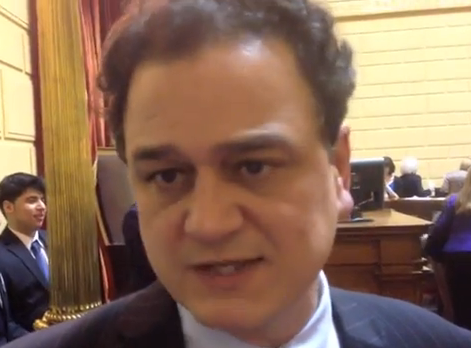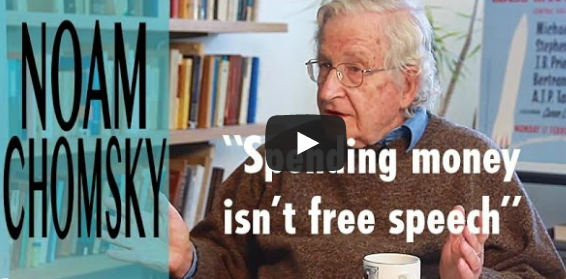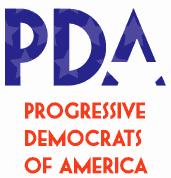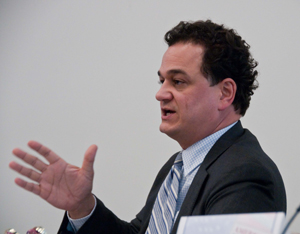In two of his recent Progress Reports, Bob Plain, the editor of RI Future, posted comments that trouble me on several levels.
It’s unlikely Binder will knock Fox out of office, but he could help move him back toward the left side of the political spectrum. Or he could do just enough political damage to make it hard for him to retain the Speaker’s gavel, which might not be a good thing for progressives…
—Bob Plain, RI Progress Report
Fox is more conservative than we’d like in a Speaker and Binder is less experienced than we’d like in a state Representative. Practically speaking, wheen factoring in both of these circumstances, the House of Representatives probably moves to the right if Binder were to upset Fox.
—Bob Plain, RI Progress Report
This logic remind me of what a Mt. Hope voter said to me recently:
“I don’t think the government is broken. I think it’s working just fine for those who are in charge.”
Unlikely?
As I’ve been knocking on doors throughout my district, the reception I have been getting is warm and congratulatory. People smile and thank me for running, especially against Gordon Fox. Then they say, “Do you think you have a chance?” I answer quite honestly, “If you and all the people you know vote for me, then I will win.”
Fox moves left?
- 38 Studios: A deal brokered by Michael Corso, a Fox business associate who profited at the expense of the taxpayers. Shoved through in a typical late night session with little debate. Representatives on the floor of the house deny that they knew that the $75 million was slated for a baseball players dream team. Even now, Gordon Fox flip flops on whether he knew/didn’t know before ramming the bill through.
- Payday Lending Reform: 50 State Reps co-sponsored a bill to reduce payday lending from 260% to about 36%. Bill Murphy, a former Speaker, was paid $50,000 by an out-of-state payday lending company. The bill died in committee. Fox said that the bill had been watered down. Why didn’t he just put the straight bill on the table?
- Marriage Equality: Civil unions are not enough. Maybe when Fox made his great compromise he thought that they were. If so, why have only 52 couples opted for the watered-down civil union option in the past two years? Since then Fox has promised to pass marriage equality but continued to duck his responsibility and avoid wielding his power to bring this black and white issue to a vote. Why? Because it protects Conservative Democrats, and it might fail. Boo hoo.
- The Midnight Education Merger: At the beginning of 2012, Fox promised no last minute votes. He broke that promise, and one of the results was the mashup of the Board of Regents and the Office of Higher Education. Asked in a debate why, he shrugged and said, “We have to try something.” No public discussion, no debate. From the folk I’ve talked with one in the elementary schools or universities want to be under the thumb of the same organization. George D. Caruolo, another former Speaker, will have a good job.
Where is the Progressive in these issues?
Political Damage?
Our legislature is dominated by fear. The Reps and Senators give away their power at the beginning of the session to the “leaders” and then beg for crumbs.
They cower in fear in the halls of the legislature and then crow when the leaders give them a line item in the budget or let one of their proposals rise from the black hole of committee. They whisper and confer and suspend the rules and vote on bills that most of them haven’t read. This is called “hardball politics.”
How’s that working for our state? The other day at the gym, a guy on a treadmill joked that every year the legislature passes lots of election bills because they always seems to benefit the legislators.
What else benefits the legislators? They get campaign contributions from special interests, and then submit bills, vote on bills and push bills through that benefit those special interests.
And it’s all out there in the public record.
- Gordon Fox collected $7,200 in contributions from auto repair shops, just 90 days before he pushed through a controversial auto insurance bill that benefitted those shops at the expense of consumers. Thankfully, the Governor vetoed the bill.
- The law firm Adler Pollack and Sheehan raised $7,300 for the Speaker. Shortly after that, they got the contract from the Joint Committee on Legislative Services to defend the gerrymandering in the legislative redistricting plan in court.
- And as recently as September 5th, the Speaker hauled in $5,900 from the lobbyist for the car wash industry and a number of car washes. That came just months after the Speaker rammed through a last minute budget proposal to exempt car washes—an only car washes—from the Governor’s expanded sales tax.
Are these really all coincidences? Who benefits from contributions to Gordon Fox’s $200,000+ campaign slush fund? Voters? Taxpayers?
Was this a move to the right or the right move?
Meanwhile, Fox has bought into the Conservative dogma that raising taxes is bad for business and good for government. And he’s given the Casinos a sweetheart deal that means taxpayers will have to loose three times as much at table games as they do at the slots just for the State to break even on what it gets now.
How’s that all going for us?
Is Speaker Fox retaining the gavel really doing the Progressives any benefit? Is having Gordon Fox in the House benefitting the people in District Four?
I think it’s clear that our “representatives” haven’t been working for us. They have been working for each other and for their special interests.
In Gordon Fox’s case, he’s been working hard for his business associates, former Speakers, and for the campaign contributors. For the people in his district? Not so much.
I will be honored if you vote for me, and help knock them out.
 Former House Speaker Gordon Fox is facing three years in jail after agreeing to plead guilty to campaign finance fraud and accepting a bribe, state and federal officials announced this morning. The announcement seems the culmination of the investigation into Fox, a powerful Providence Democrat, that was marked by the high-profile raid of his State House office last year.
Former House Speaker Gordon Fox is facing three years in jail after agreeing to plead guilty to campaign finance fraud and accepting a bribe, state and federal officials announced this morning. The announcement seems the culmination of the investigation into Fox, a powerful Providence Democrat, that was marked by the high-profile raid of his State House office last year.













